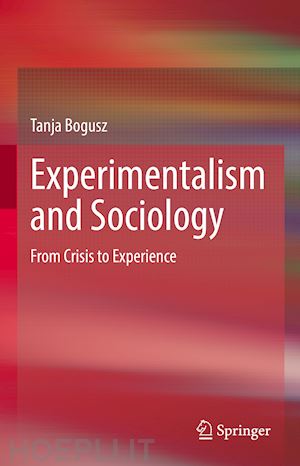Chapter 1: Introduction: Experimentalism – an Old Name for Some New Ways of Thinking.
Chapter 2: Categorial Foundations for a Social Theory of Experimentalism: John Dewey as Sociologist.
2.1 Experiencing, testing, cooperate – On the Relevance of the experimental Perspective for Sociology.
2.2. Flashback: History and Scope of the US-American Pragmatist Movement.
2.3 Deweys logical Experimentalism as Sociology.
2.3.1 "Experience": Dewey‘s procedural Theory of Knowledge.
2.3.2 "Test": Dewey‘s constructivist Social Theory.
2.3.3 "Cooperation": Dewey‘s Theory of Society.
2. 4. What means Experimentalism? Summary and first Hypothesises.
Chapter 3: Test Run I: What means Experience? Experimentalist Sociologies as Theories of Knowledge.
3.1 Why Rorty was Wrong.
3.2 Socio-political Experiential Differences as Originator for Experimental Action:
the City, the Land, the Laboratory.
3.3 The Modi operandi of Experience: Situating, co-relating, materializing.
3.3.1 "Situate": The transformative Moment of Experiential Differences – Chicago School.
3.3.2 "Co-relate": The Practice-Theoretical Thesis of Continuity – Bourdieu in Algeria.
3.3.3 "Materialize": Experimental Translation of Researcher’s Experience – Knorr- Cetina in
the Laboratory.
3.4 Interim Conclusion: The Experimental Theory of Knowledge.
Chapter 4: Test Run II: What means Test? Social-Theoretical Effects of Experimentalism.
4.1 Heisenberg and the Random Universe.
4.2 The Test-Situation as Incentive for Experimental Knowledge Production.
4.3 The Modi operandi of the Test: Preparing, testing, modelling.
4.3.1 "Preparing": Luhmann’s Sociological Knowledge Theory.
4.3.2 "Testing": The Experiment as an Event – Actor-Network-Theory as methodological Pragmatism.
4.3.3 "Modelling": Ratification of epistemic Relevancies – The Pragmatic Sociology of Critique.
4.4 Interim Conclusion: The Experimental Social Theory.
Chapter 5: Test Run III: What means Cooperation? Experimentalism as a Contribution for a Critical Social Ecology.
5.1 Epistemic Cloudbursts and Nice-Weather-Theories.
5.2. Cooperations as a Response to Experiential Differences: Entangled Modernity, the Environment, the Public.
5.3 The Modi operandi of Cooperation: Criticising, participating, collaborating.
5.3.1 "Criticising": On the Productivity of the Nature-Culture-Divide – Descola’s Cosmo-Political Anthropology of Nature
5.3.2 "Participating": Experimental Sociologies of Critical Publics – STS and ANT.
5.3.3 "Collaborating": Bringing Dewey to a Marine-Biological Expedition – Doing Biodiversity.
5.4 Interim Conclusion: The Experimentalist Theory of Society.
Chapter 6: Conclusion – from the Science of Crisis to the Science of Experience.
6.1 Experience versus Crisis.
6.2 Test versus Settlement.
6.3 Cooperation versus Solidarity.
6.4 Outlook.











